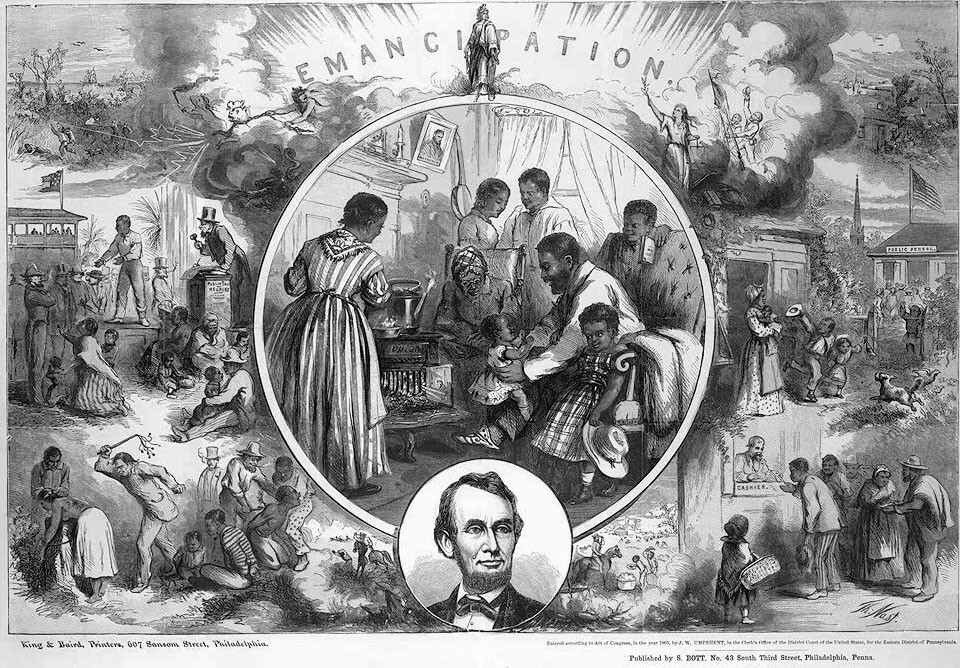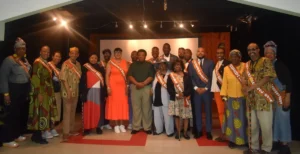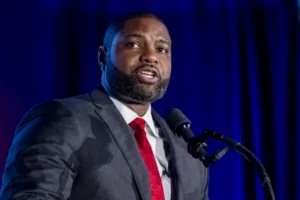The Journey to Juneteenth: The Complicated History of Emancipation

Dr. Tameka Bradley Hobbs
Communities and organizations across the nation are preparing to celebrate the Juneteenth holiday on the first anniversary of its federal recognition, and the 156th anniversary of its commemoration in Texas. For those who are accustomed to the celebrations, their programs are amplified. Those who are new to the occasion have the opportunity to learn.

Unfortunately, there is a great deal of misinformation and misunderstanding about the way that emancipation unfolded in the United States. Foundationally, it is important to understand that ever since enslavement as a practice was established in the US, Black people have worked to free themselves from forced servitude. Outnumbered and outgunned, it would take the onset of a sectional war in the 1860s in the nation to open the door for freedom. As President Abraham Lincoln assumed leadership of the nation in 1861, the Confederate States of America had already begun to take shape, withdrawing from the US in an attempt to protect their investment in slavery. President Lincoln, however, had no intention of using the power of his office to free any enslaved people. Writing in 1862, Lincoln outlined, “If I could save the Union without freeing any slave I would do it, and if I could save it by freeing all the slaves I would do it; and if I could save it by freeing some and leaving others alone, I would also do that.”
Eventually, Lincoln invoked the idea of emancipation as a military strategy, hoping to bring the Confederates to the negotiating table while also earning the support of European nations for the Union cause. Thus, the preliminary Emancipation Proclamation he signed in September 1862 allowed the Confederate forces 100 days to end the conflict or risk losing the enslaved people that were the basis of their economy and society. They were unmoved by Lincoln’s offer, and on January 1, 1863, he officially signed the act into law.
Then as now, laws are only as effective as their enforcement. The only enslaved people who were freed with the stroke of Lincoln’s pen were the ones living in areas under the control of the Union Army, and they were only a few thousand in number. Not until the Union Army defeated the Confederate Army on April 9, 1865, officially ending the US Civil War, could emancipation be executed. For that reason, emancipation spread as the Union Army advanced through the rest of the defeated South.
In Florida, the news arrived on May 20, 1865, when Brigadier General Edward McCook of the U.S. Army First Cavalry Division read Abraham Lincoln’s Emancipation Proclamation and raised the Union flag on the steps of the Knott House in Tallahassee, then the Hagner House, during a ceremony and officially ended slavery in Florida. It would take until June 19, 1865, for the news to reach Galveston, Texas, ceremonially ending slavery in the last Confederate stronghold. Slavery was ended in the US as a matter of law, except for punishment for crime, with the Thirteenth Amendment, which was ratified on December 6, 1865.
Every year since then, African Americans in North Florida and Central Florida have celebrated the 20th of May as Florida’s Emancipation Day, and Texans have celebrated Juneteenth. In 1979, the Texas legislature enshrined the holiday as a part of their state calendar, creating a highly-visible and well-branded occasion that began to take root in other states. As many sought symbolic ways to demonstrate their inclusivity during the Racial Reckoning of 2020, the Juneteenth holiday was low-hanging fruit.
As a national holiday, Juneteeth now allows the opportunity to tell a more truthful and inclusive story about the complicated facts of US history. While the 4th of July was an important step in establishing our nation, in 1776 enslaved people experienced none of the liberty or freedom that we traditionally recognize on that anniversary. Juneteeth is an important and necessary bookend to America’s Freedom Story. Then as today, none of us are free until all of us are free.








